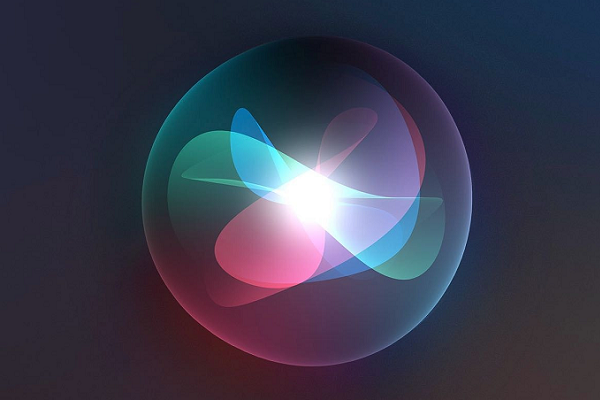Recently two Silicon Valley giants made big investments in their future. But while HP’s purchase of Palm got all the headlines and page views, Apple’s acquisition of Siri, an iPhone “personal assistant”, is the real story.
Palm Meet HP
After pioneering the PDA market with fantastic products like the Pilot, Palm allowed itself to be lapped first by Handspring, a company formed by former Palm employees, and then by practically everyone else. RIM outpaced them on smartphones, then Apple revolutionized the entire industry with the iPhone. The Palm Pre was a decent enough phone, but the writing was already on the wall.
So what does a company of HP’s size and stature want with Palm? The obvious answer is to compete in the mobile space which is THE growth area for the next decade. The Palm purchase gives HP access to extensive patents, a well-designed, open smartphone OS, and a recognized (if somewhat tarnished) brand name. Given that HP has been working on a slate/tablet/”iPad killer” for at least three years, the Palm buyout was almost an inevitability. HP also gains the ability to implement Palm technology across a broad range of devices, potentially becoming a competitor to Apple’s ecosystem.
Siri-ously Awesome Apple Acquisition
Apple’s newest $200 million toy, on the other hand, comes as a bit of a surprise. Siri is a voice-powered personal assistant app. You tell your iPhone “find out where Iron Man 2 is playing near me” using text or speech, and it does just that. It’s a deceptively simple app with profound implications for interaction, mobile computing and artificial intelligence, in some ways the fulfillment of Apple’s “Knowledge Navigator” video from decades ago.
And that’s the key difference between HP and Apple. While HP plays catchup, Apple is already thinking several moves ahead of the entire industry. HP may be able to turn its $1.2 billion expenditure into a thriving ecosystem of products, but unless they also implement an easy way to feed those products with content, they’re sunk. Apple’s competitors continue to trot out iPod, iPhone and iPad “killers”, but they never seem to clue into the convenience of iTunes as the hidden key to Apple’s success. Really, buying or building comparable hardware to Apple’s offerings is the easy part.
But beyond content, Apple’s main drive has always been to remove the many layers of difficulty between the machine and the user, going back as far as the original Macintosh 128k in 1984. The iPad is merely the latest iteration of a series of devices that make interaction as effortless and natural as humanly possible.What could be more human than speaking to someone, and having them act on what you’ve said?
Like most Apple products and acquisitions, Siri will at first make little impact on the company’s products. Only once the underlying technology of the app has been integrated into the iPhone and OS X will we see real changes in the way we interact with our devices, but by then it will be too late for HP and other hardware vendors looking to beat Apple. They’ll have to compete not only on hardware but with intuitive interfaces, voice recognition, and search. Only a behemoth like Google is capable of playing the game at that level, and that’s why Apple’s acquisition of Siri is aimed squarely at the search giant, not hardware vendors.
Siri Gives Edge Where Palm Is Dead Weight
Google’s Android OS is the closest competitor Apple has in the mobile space, and the search giant has been quietly honing its speech recognition, translation and voice search technologies. Acquiring Siri is a way for Apple to step up to Google and offer the same or better services in an intuitive package. Pair that capability with iAds, Apple’s new mobile advertising network, and you have at least the potential for domination of another market potentially worth billions.
Years from now, I think we’ll look back at HP’s purchase of Palm as an expensive footnote. But we’ll be experiencing Siri’s functionality under the hood of our Apple products on a daily basis, and in ways that go beyond the “ooo, shiny” of new hardware. Apple isn’t just staying one step ahead of the rest of the industry, they’re anticipating what we want before we know we want it, and that’s why they’ll still be leaders years from now.HP may be huge, but that doesn’t make them smart.



This looks amazing! Wish it was available in the UK though…
This is exciting! Being a Apple enthusiast it’s wonderful to know that the team you’ve stuck by since inception sits comfortably atop the tech world. I’m particularly interested to see if HP can create that ecosystem. Microsoft finally woke up and have moved in that direction with windows 7, zune, and the window’s 7 phone, however it seems as if those Microsoft products are drowning in the pool of other Microsoft technologies. I dunno, It just kinda seems too late for Microsoft to have a “Microsoft Rumors” site. HP is more pure, but they’re associated with Microsoft, but they also have distanced themselves with the touchsmart sort of. It’s a tough call, but I think Google has the best shot of anyone to compete head to head with Apple. They’re newish, not Microsoft associated and have the creatives in place to combat the big “A”. HP would have to abandon Microsoft (Which isn’t going to happen) and start all over based off of Palm technologies. This article makes you wonder.
This is the second time that I see this buyout comparison and the second time with the same exact analysis. I just don’t see how the two mergers are related. HP makes a bold move into the next stage of computing (mobile devices, tablets, etc), and Apple buys an app. No doubt Apple’s pick-up of Siri is fun and flashy, but how exactly one acquisition has anything to do with — or much less trump — the other is beyond me.
Don’t leave market analysis to people who are in love. The analyst’s rose colored glasses doesn’t help the reader.
I agree with vara411’s first statements (the ones he makes before his own personal rose colored glasses take over :-)), namely that these two acquisitions (they are not mergers) aren’t related.
Apple bought a company for $200 million so that one day soon (when they get all the developers moved to California, incorporated into the iPhone OS group, get their code ported into the OS itself, etc. maybe in 8-12 months) Apple will have voice searches directly in the OS.
Meanwhile, 15 months ago, Google released voice search on their mobile phone OS Android: “Search with your voice on Android”.
If this is Apple “thinking several moves ahead of the entire industry”, I suggest the writer needs to get himself some new tint-free glasses.
With today’s (Oct 4 2011) announcement of the iPhone 4S we now know that it took them 16 months to do something with Siri.